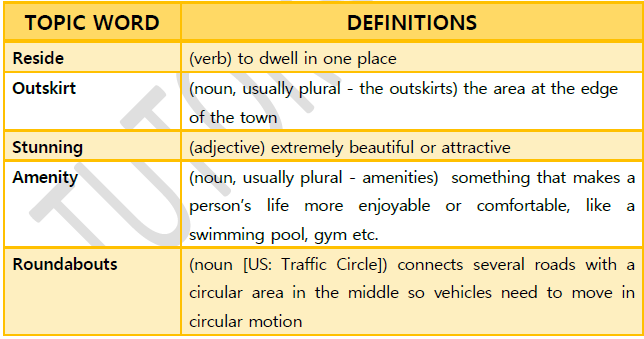Questions & Sample Answer
Q: Can you tell me about yourself?
A: My name is [Your Name], and I am 12 years old. I enjoy reading books and playing soccer. My favorite subject is Science because I am curious about how things work.
A-2 :
My name is Alex, and I’m 13 years old. I’m passionate about science, especially astronomy, because I love learning about the universe. I enjoy reading books and conducting small experiments at home. Besides academics, I play soccer, which teaches me teamwork and discipline. I also volunteer at a local animal shelter on weekends, which has taught me responsibility and compassion. My goal is to contribute to scientific discoveries and help animals. I’m excited about the opportunities at this school to grow academically and personally.
Points to Consider:
- Be Concise: Keep your answer brief and to the point, focusing on key aspects of your personality and interests.
- Showcase Your Interests: Talk about your hobbies and interests, especially those relevant to the school’s ethos or curriculum.
- Include Personal Qualities: Mention personal qualities or skills you’ve developed through your experiences.
- Align with School Values: If you know the school values certain qualities or activities, try to reflect these in your answer.
- Be Positive and Authentic: Stay positive and be genuine in your response. Avoid memorizing a script; instead, speak naturally.
Q: Why do you want to attend our school?
A: I want to attend your school because it has an excellent academic reputation and offers a variety of extracurricular activities that I am interested in, like music and science clubs.
A-2:
I am excited about the opportunity to attend your school because of its strong commitment to holistic education. Your school’s emphasis on both academic excellence and character development aligns with my personal values. I am particularly drawn to your innovative science program and the diverse range of extracurricular activities offered, which I believe will help me to explore my interests in science and sports more deeply. Additionally, your school’s community service initiatives resonate with me, as I am passionate about giving back to the community. I am eager to contribute to and grow in this vibrant and nurturing environment.
Points to Consider:
- Specific Attributes: Mention specific programs, values, or aspects of the school that appeal to you.
- Personal Connection: Explain how these attributes align with your interests, goals, or values.
- Contribution and Growth: Indicate how you plan to contribute to the school community and how attending the school will aid in your personal growth.
- Authenticity: Be sincere in your response and avoid generic reasons that could apply to any school.
- Stay Focused: Keep your answer focused and within the word limit, ensuring it’s concise yet comprehensive.
Q: What are your strengths and weaknesses?
A: ”My strength is that I am very organized and always plan my schedule carefully. My weakness is sometimes I am a bit shy in new situations, but I am working on being more outgoing.
A-2:
One of my strengths is my curiosity, especially in learning new things. It drives me to explore and understand topics deeply, like in science and history. I’m also quite organized, which helps me manage my time and schoolwork effectively. As for weaknesses, I sometimes get nervous speaking in front of large groups. However, I’m working on this by participating in class discussions more often. Additionally, I can be a bit impatient, but I’m learning to be more mindful and patient, especially when working on challenging tasks.
Points to Consider:
- Be Honest: Provide genuine strengths and weaknesses.
- Positive Framing: Frame your weaknesses in a way that shows your awareness and efforts to improve.
- Relevance: Choose strengths that are relevant to academic and school life.
- Balance: Ensure a good balance between strengths and weaknesses to show self-awareness.
- Avoid Clichés: Steer clear of clichéd responses and be specific in your examples.
Q: What is your favorite book and why?
A: My favorite book is ‘Harry Potter and the Sorcerer’s Stone’ because it’s a magical story that teaches about friendship and bravery.
Q : Can you describe a challenge you’ve faced and how you overcame it?
A: Once, I had difficulty understanding a math concept, but I didn’t give up. I asked my teacher for extra help and practiced a lot at home. Eventually, I was able to understand it completely.
Q : Who is your role model and why?
A : My role model is my science teacher because she is knowledgeable and always encourages us to ask questions and explore new ideas.
Q : What are your hobbies?
A: I enjoy playing the piano and reading. I also like to play basketball with my friends on weekends.
Q : What do you want to be when you grow up?
A : I want to be a doctor because I like helping people and I am interested in medicine and how the human body works.”
Q: What subjects do you like and dislike?
A: I really like Math because I enjoy solving problems. I find History a bit challenging, but I am working on improving in that subject.
Q : How do you handle stress?
A: When I am stressed, I take deep breaths and take a short break to clear my mind. Sometimes, I also talk to my parents or friends about my worries.
Q : What makes you happy?
A: Spending time with my family and friends makes me happy. I also feel happy when I am able to help others.
Q : Tell me about a time you showed leadership
A : In a group project, I was chosen as the leader. I organized our meetings and made sure everyone’s ideas were heard. We worked well together and received a good grade.”
Q : What is your favorite animal and why?
A: My favorite animal is the dolphin because they are smart and friendly. I also admire how they communicate with each other.
Q : Describe a memorable event in your life.
A : A memorable event in my life was when I won a school science fair. I worked hard on my project about renewable energy and felt very proud when I received the award.
Q : How do you work in a team?
A : In a team, I listen to others’ ideas and share my own thoughts respectfully. I believe that cooperation and good communication are key to a successful team.”
Q : What book are you currently reading?
A : I am currently reading ‘The Giver’ by Lois Lowry. It’s a fascinating story about a society that seems perfect but has hidden secrets.
Q : What do you think about teamwork?
A : I think teamwork is important because we can learn from each other and achieve more together than alone. It’s also a good way to build friendships.
Q: Can you tell me about a project you are proud of?
A : I am proud of a history project where I made a presentation about ancient Egypt. I researched a lot and even made some models of pyramids.”
Q : What is your favorite subject in school and why?
A : My favorite subject is English because I enjoy reading stories and learning about different cultures. It also helps me improve my communication skills.
Q : How do you plan to contribute to our school community?
A : I plan to contribute to the school community by participating in clubs and activities. I also want to be a good friend and help others whenever I can.
Q : What do you think is the most important quality in a friend?
A : I think the most important quality in a friend is honesty. It’s important to trust and be able to rely on each other.
Q : Describe a time when you helped someone.
A : I helped a classmate who was struggling with math. I spent some afternoons explaining the concepts and practicing with them until they understood.
Q : What are your future goals?
A : My future goals are to finish high school with good grades and attend a university. I also want to travel and learn about different cultures.
Q : How do you manage your time effectively?
A: I manage my time by making a schedule and sticking to it. I prioritize my tasks and make sure to include time for rest and hobbies.
Q : Tell me about a time you overcame a fear.
A: I used to be afraid of public speaking, but I overcame this fear by practicing in front of my family and joining a speech club at school.
Q : What is your greatest achievement?
A: My greatest achievement is winning a national essay competition. I wrote about environmental protection, and it was rewarding to have my work recognized.
Q : How do you stay motivated?
A: I stay motivated by setting goals for myself and celebrating small achievements.
Q : Can you tell me about your elementary school life?
A: In elementary school, I enjoyed learning new things and making friends. I was part of the school’s art club and loved creating paintings and drawings. My favorite subject was Science because we did a lot of interesting experiments.
Q : What was your favorite activity in elementary school?
A: My favorite activity in elementary school was the annual sports day. I loved participating in the races and team games. It was a fun day full of energy and teamwork.
Q: How have you grown since starting elementary school?
A : Since starting elementary school, I have become more confident and independent. I have learned to manage my time better and to be more responsible with my studies and other activities.
Q : Are you applying to any other schools besides ours?
A : Yes, I am applying to a few other schools as well. However, your school is my top choice because of its excellent academic programs and the extracurricular activities that align with my interests. I believe your school offers the best environment for my personal and academic growth.
Q : How did you find the written exam?
A : I found the written exam to be challenging but fair. I prepared well, so I felt confident answering most of the questions. There were a few tough ones that made me think harder, which I actually enjoyed. Overall, I believe I did my best and I’m hopeful about the results.
Q: How do you plan to commute to school if you are accepted?
A: If I am accepted, my plan is to take the train to school. There is a direct train from my nearest station to the school, which takes about 30 minutes. I also checked alternative routes in case of train delays. I am excited about the journey as it will give me some time to read or review my lessons.
In this response, the following points are considered:
- Specific Mode of Transportation: Specifically describe the main mode of transportation used for commuting (in this case, the train).
- Time and Distance: Mention the time and distance from the nearest station to the school.
- Consideration of Alternative Routes: Indicate consideration of alternative routes in case of emergencies like train delays.
- Effective Use of Commuting Time: Express intention to use commuting time for productive activities like reading or reviewing.
Q : How do you interact with your friends?
A: I enjoy spending time with my friends, whether we are studying together or playing sports. We often help each other with homework and share our interests. I believe in listening carefully to my friends and respecting their opinions.
Q : What do you value most in your friendships?
A : In my friendships, I value trust and kindness the most. I think it’s important to be there for each other in good times and bad. I also appreciate friends who can challenge me and help me grow.
In these responses, the following points are considered:
- Participation in Joint Activities: Mentioning activities like studying or playing sports with friends, and spending time together.
- Mutual Support and Sharing: Citing examples like helping each other with homework and sharing interests.
- Respect for the Other’s Opinion: Emphasizing the importance of respecting and listening to a friend’s opinion.
- Trust and Kindness: Highlighting trust and kindness as important values in friendship.
- Contribution to Each Other’s Growth: Discussing the value of growing together with a friend.
Q : Do you have someone you admire?
A: Yes, I greatly admire my grandmother. She has always been a source of inspiration to me. Despite facing many challenges in her life, she remained positive and worked hard to achieve her goals. She taught me the importance of perseverance and kindness. Her stories and advice have helped shape who I am today.
In this response, the following points are considered:
- Identification of an Individual: Identifying a respected person (in this case, grandmother) and illustrating their significance to oneself.
- Challenges and Positivity: Highlighting the challenges faced by the person and their positive responses.
- Lessons and Influence: Describing the lessons learned from the person (in this example, patience and kindness) and how they have impacted oneself.
- Contribution to Personal Growth: Explaining how the stories and advice of the person have contributed to one’s own growth.





























